Deadly Nicaragua protests subside as talks mooted
Rights group Nicaraguan Centre for Human Rights said 34 people had died in the demonstrations
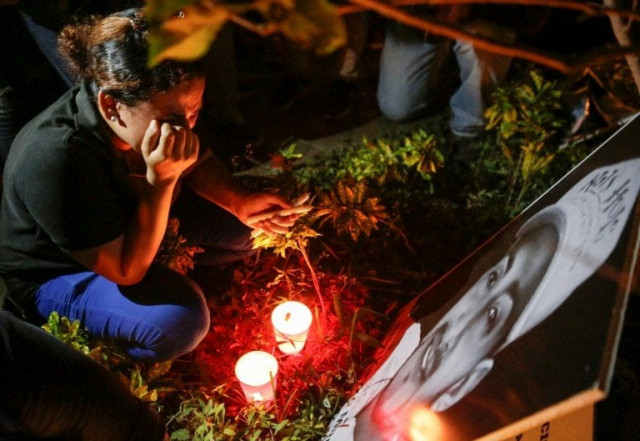
PHOTO AFP
A prominent rights group, the Nicaraguan Centre for Human Rights, said 34 people had died in the demonstrations that had been brutally put down by security forces.
Ortega's government has not put out an official death toll since last Friday, when it counted 10 deaths.
The protests were triggered by pension reforms that Ortega ended up withdrawing amid mounting condemnation of the harsh police tactics against the demonstrators.
Other grievances also surfaced, notably resentment at the authoritarian style of Ortega and his wife Rosario Murillo, who is his vice president.
The unrest was the worst Ortega has faced in the past 11 years of his current stretch in power.
At least three dead, including police officer, in Nicaragua protests
A mass march in Managua on Monday brought together tens of thousands of ordinary Nicaraguans, many of them calling for him to step down.
By early Wednesday, the protests appeared to fade away after Ortega made a series of concessions, including freeing dozens of arrested protesters, lifting curbs on independent media and calling for dialogue.
Makeshift road blocks had been cleared and traffic in the capital was returning to normal. There was no more of the looting and panic buying that had characterized the worst of the unrest over the weekend.
Schools were also reopening, after the government had ordered them closed Thursday as the street violence spread to towns and cities across the country.
But some Nicaraguans adopted a wait-and-see attitude over whether tensions were dissipating or merely in a lull.
"We are going to see how long this calm lasts," said Managua taxi driver Alan Saavedra.
"I'm not sending my daughter to class because I still don't see it as stable," he said.
Some of the released protesters, many of them youths and university students, said they were maltreated in custody.
"The hit all of us in the stomach with kicks, punches and the sticks they use. They hit us in the head," one of them, Marvin Guevara, 26, told AFP.
In jails their hair was cut short and they were made to fill out forms and say if they had any diseases, he said, his voice cracking. Each answer was met with blows, he said.
Another man released, Carlos Sandoval, said they were told they were "political prisoners" for opposing the government and insulted by police.
Jose Castaneda, another freed protester, said: "they put us in a cell where they continued to hit us. They dragged us along the ground."
At his side, Gilbert Altamirano said "we were tortured — beaten like I have never been in my life. The more we cried, the more they beat us."
More than 200 people were detained in the protests, but no charges were laid.
Fifteen of them on Wednesday lodged a complaint with the government's human rights office over the treatment they endured.
The Nicaraguan Centre for Human Rights said 16 protesters were still missing.
The capital's archbishop, Leopoldo Brenes, has put himself forward as a mediator in talks called by Ortega.
The head of the country's powerful employers' union COSEP, Jose Aguerri, told AFP on Tuesday that conditions were coming together for dialogue to take place.
"We had said that the conditions for us to sit down were that there must be freedom of expression, freedom to gather together, the freeing of detainees.... This has happened. Now we are waiting for the Episcopal Conference (the bishops) to make the decision" to start talks, he said.
Pressure grows on Nicaragua's Ortega as protest toll hits 27
COSEP had abandoned a longstanding alliance with Ortega when public anger erupted over the deadly force used by his security forces and government-linked groups against protesters.
Winning back the business leaders' support is seen as key for Ortega to restore his authority.
Any talks with them are expected to return to the controversial issue of pension reform that triggered the wave of violence.
The Nicaraguan Social Security Institute is on track to go broke within a year or two on its current trajectory.
The abandoned reforms had sought to increase employee and employer contributions while cutting benefits to cap a deficit for the agency that has ballooned to $76 million.
But that issue is now just one part of a panoply of public grievances that have led even former supporters to reject Ortega, a one-time Sandinista guerrilla who has ruled over the country for 22 of the past 39 years.
"The people are tired of being repressed, of being intimidated," said Eliza Rodriguez, a resident of Leon, a Sandinista bastion northwest of the capital.
Carlos Gutierrez, a 26-year-old who watched a university building be torched in the town during the unrest, added: "We need total change. More freedom. More official support for the people, and no more authorities hurting the people."


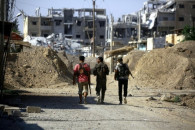
1724148693-0/BeFunky-collage]_____-(24)1724148693-0-208x130.webp)
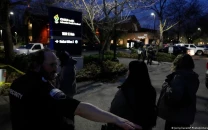
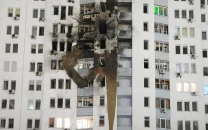
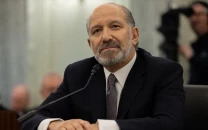












COMMENTS
Comments are moderated and generally will be posted if they are on-topic and not abusive.
For more information, please see our Comments FAQ